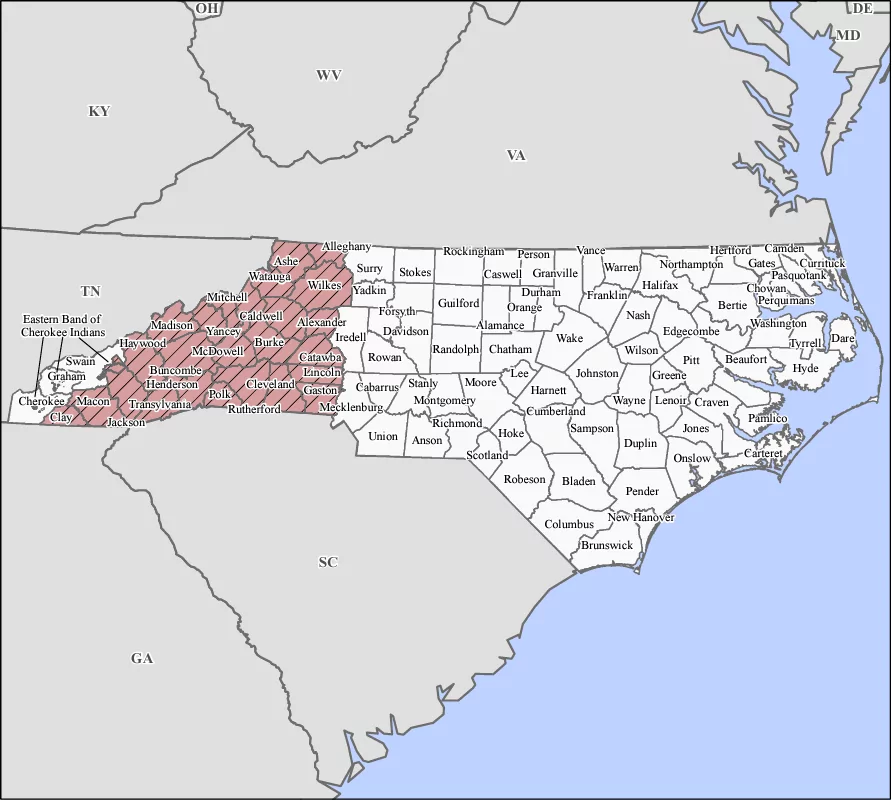The destruction left behind by Hurricane Helene could alter the outcome of the presidential election given the storm’s impact on more than 1 million battleground state residents weeks before Nov. 5.
Far more Republican than Democratic voters live in the area of North Carolina that was devastated in late September by a historic hurricane that tore through the mountains and valleys surrounding Asheville.
With less than a month until voters decide between Vice President Kamala Harris and former President Donald Trump, state election officials are putting procedures in place to make it easier for those affected by the storm to vote.
David Axelrod, a Democratic political strategist who advised former President Barack Obama, said the storm’s impact has thrown in an “unpredictable element” into an already complicated effort by both campaigns to win the state.
“There’s a lot of displacement in Western North Carolina. Now, Asheville is a blue dot,” said Axelrod in a recent episode of the political podcast Hacks on Tap. “But those voters in Asheville are — they’re, they’re the kind of voters that will figure out a way to vote. I’m not sure a bunch of these folks who had their homes and lives destroyed elsewhere in Western North Carolina in the mountains there are going to be as easy to wrangle for the Trump campaign.”
How did Helene affect western North Carolina
Helene claimed the lives of more than 230 people as of Monday. It made landfall on Sept. 26 along the Florida Panhandle and tore through Georgia, South Carolina, and North Carolina.
It is unusual for a storm to make its way north, several hundred miles west of the Atlantic Coast, and have sustained winds of up to 100 mph, which is what made this one so devastating despite being so far inland.
The flooding was particularly bad in the valleys of the mountainous region because rain waters flowed down the mountains and into the valleys. Asheville’s Biltmore Village shopping center was underwater as a result, while surrounding counties sustained horrific damage from the winds, including landslides and countless downed trees across roadways.
The response from the federal government has been “slow,” according to Sen. Ted Budd (R-NC), who told Fox News on Oct. 4 that National Guard troops had been made ready to deploy to the region but not yet sent in by the Biden administration.
As of Monday, the Defense Department said it had sent nearly 1,000 soldiers from Fort Liberty in North Carolina and Fort Campbell in Kentucky to western North Carolina to support residents. An additional 500 soldiers were helping clear emergency routes.
Residents in the region remain without electricity and water. North Carolina’s election officials said Monday that it has affected early voting, absentee voting, and Election Day procedures.
In a phone briefing Monday afternoon, state election officials said up to 10 of 62 early voting sites across the region could be reduced due to damage from the hurricane or road closures.
As of Monday, the state election board is examining the state of 270 Election Day sites across that region, according to North Carolina State Board of Elections Executive Director Karen Brinson Bell.
Could this affect the presidential election?
Data provided by the North Carolina State Board of Elections shows 1,277,579 registered voters across the 25 disaster counties in western North Carolina as of Sunday. Of that total figure, 491,098 voters were unaffiliated with a party and made up the largest share of the region’s voters.
Republicans comprised the second-highest share of voters: 480,916, followed by 293,397 Democratic voters. The next largest share of voters was within the Libertarian Party: 8,410, followed by smaller numbers from the Constitution Party, Green Party, Justice for All Party, No Labels Party, and We the People Party.
Trump won North Carolina in the 2020 matchup against President Joe Biden by a mere 75,000 votes out of 5.4 million ballots cast.
Trump has made disaster response to the GOP-leaning region a campaign issue. He’s blamed the Biden-Harris administration for what he described as the “WORST rescue operation.”
“The GREAT people of North Carolina are being stood up by Harris and Biden, who are giving almost all of the FEMA money to Illegal Migrants in what is now considered to be the WORST rescue operation in the history of the U.S,” Trump wrote in a post to Truth Social on Monday. “On top of that, Billions of Dollars is going to foreign countries! NORTH CAROLINA HAS BEEN VIRTUALLY ABANDONED BY KAMALA!!! DROP HER LIKE SHE DROPPED YOU – VOTE FOR PRESIDENT DONALD J. TRUMP. MAGA2024!”
North Carolina is a battleground state that Trump and Harris have frequented this election season to shore up support. Trump leads Harris by about 1 percentage point, according to the RealClearPolitics average of North Carolina polls.
A spokesman for the state elections board told the Washington Examiner last week that absentee ballots sent out via mail could have been damaged in the storm, but officials “have no way of knowing.”
As of Sunday, the state had mailed out 41,255 ballots to voters in the hurricane zone and only received back 2,292 — leaving 38,963 in limbo and unaccounted for.
How has the North Carolina election board responded?
On Monday, the North Carolina State Board of Elections approved in a unanimous, bipartisan vote emergency measures to help residents affected by the storm be able to vote in the election next month.
The goal, according to Board Chairman Alan Hirsch during the meeting, is that “no one is denied the right to vote because of these logistical problems.”
The Democratic-majority board voted 5-0 to allow county election boards in 13 affected counties to change early voting procedures and Election Day voting sites, as well as the ability to hire more poll workers.
Republican board member Stacy Eggers IV of Boone said although she would typically hesitate to make changes to an election, those passed Monday were “tailored to give flexibility to the county boards” to meet their individualized needs given the storm’s impact on the region.
The counties covered by the change included Ashe, Avery, Buncombe, Haywood, Henderson, Madison, McDowell, Mitchell, Polk, Rutherford, Transylvania, Watauga, and Yancey — roughly half of the total federal designated disaster counties.

County officials will now be able to decide whether to change early voting sites, hours, and days of operations. Early voting will go on as planned, starting Oct. 17 and running through Nov. 2. Election Day is Nov. 5.
The state election board will not change the voter registration deadline of Oct. 11.
“These measures were put in place to ensure the victims of Helene can vote in the upcoming election and provide election officials in the hardest hit areas the tools they need to conduct a secure election under extraordinarily difficult conditions,” Bell said in a statement.
CLICK HERE TO READ MORE FROM THE WASHINGTON EXAMINER
The newly passed measures allow voters in the 13 counties to request and pick up an absentee ballot in person at their county board of elections until Nov. 4 and drop off the completed ballot at the county board by 7:30 p.m. on Nov. 5.
It also allows near relatives and legal guardians to hand-deliver completed absentee ballots to another county board of election in the case that someone cannot make it to their local county board of polling place.























